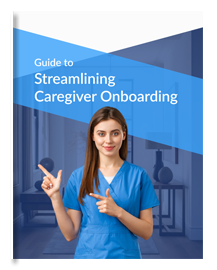In Conversation with Mariella T Zuniga to Bring Her Insights on Caregiving for a Dementia Elderly
Being a caregiver is an incredibly rewarding experience, which is also a difficult one. And, if the senior has dementia, caregiving can be even more challenging. Dementia is an all-encompassing word for the general decline in an elderly’s cognitive function.
Millions of people living in the United States of America take care of the elderly with dementia. However, this task isn’t just one person, instead the role of many people who share tasks and responsibilities.
Irrespective of how caregivers offer care, taking care of the other person can be overwhelming at times, which requires some advice from experts to navigate through challenges posed by dementia caregiving.
To shed some light on the same, we interviewed a home care industry expert to bring her perspective on caregiving for an elderly with dementia.

Who Did We Interview?
Mariella T Zuniga is a consultant occupational therapist who specializes in client engagement in successful aging and innovation. She has high-level experience in operations, workflow processes and relationship management.
Let’s get started with knowing what our expert thinks of the home care industry:
Question 1: What, in your opinion, can caregivers do to support seniors with dementia?
Caregivers can lend compassion, respect, and understanding to older adults with dementia. Understanding that the condition is progressive and allowing for engagement in what remains to be meaningful for the individual with dementia are important. Also, AVOID the”infantilization” of older adults. Treat them as a person, redirect them as needed and provid them with an environment that is familiar, friendly and safe.
Question 2: Do dementia patients need to make certain lifestyle changes for minimizing the impact?
Research has shown that lifestyle changes such as exercising more, eating nutritious foods, and having adequate rest may slow down the process of cognitive and physical changes associated with dementia.
Question 3: How should family members and caregivers communicate with dementia patients?
Use simple and familiar words when communicating with patients with dementia; Avoid infantilizing statements; Allow and wait for the individual to respond, use pictures if necessary; Redirect the conversation as needed; Use low and calm voice when speaking with the person; Repeat to clarify in order to understand them. Do not use a condescending tone.
Question 4: Do caregivers and family members need to take certain steps to make the elderly’s house dementia friendly?
Keep pathways uncluttered and well-lit (soft light); Place pictures of family members and familiar faces within the home environment; Use a calming wall color or background; Keep furniture layout and living area non-distractible; Put signs on bathroom doors indicating “bathroom”; Install grab bars and non-slip bathtub/shower mat; Consider putting a shower chair in the bathroom and installing a toilet riser if the toilet is low.
In case of a person is a “wandering risk”, cover exit doors with curtains to redirect the attention; If possible, modify stove top to electric conduction to prevent turning on gas knobs accidentally; Keep rugs taped down on the floor to prevent tripping on edges.
Question 5: What advice do you give to caregivers dealing with dementia in older adults?
Caregivers should also allow themselves to get some REST and do SELF-CARE; be aware of caregiver fatigue and burnout. Self-care is essential so that you can give care to others.
In the End
Making decisions for somebody who is unable to make healthy choices for themselves can be overwhelming. Thus, it has become absolutely important for caregivers to offer the required care while considering their health.
After all, it can feel lonely and frustrating. Ask for help whenever needed and eat nutritious food to keep yourself active and healthy for a longer period. Joining a caregiver’s support group may also help you escape loneliness and isolation.
Caring for the elderly with dementia is more challenging than rendering care to the elderly without it, so ensure prioritizing self-care!
